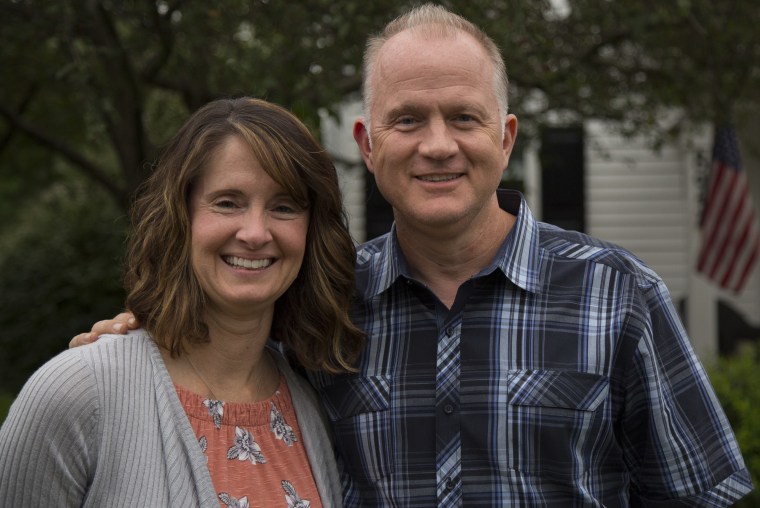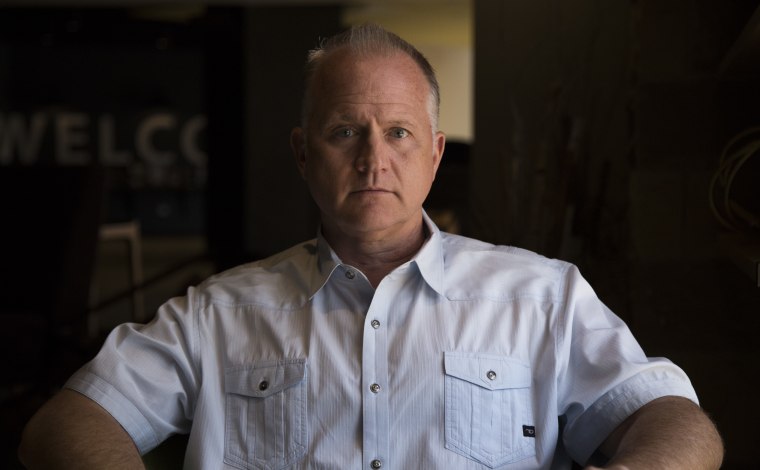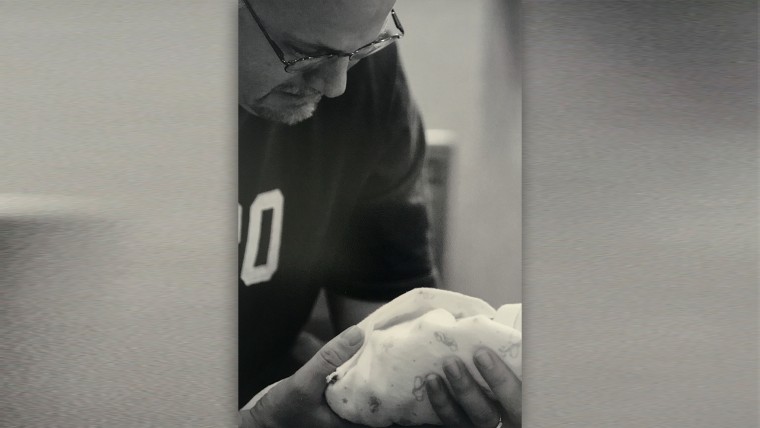Kelly Farley lost his daughter, Katie, to miscarriage, in 2004. Though paralyzed by grief, he returned to work immediately. Two years later, Farley lost son Noah, who was stillborn. Again, he returned to work, not knowing what else to do.
“I have always been taught if you bury it deep enough it eventually goes away. That doesn’t apply to the death of a child,” he told TODAY. “We are not meant to carry the burden.”
Farley's grief eventually began spilling out. On the drive to work, he’d start crying. He’d pause before going into his house at night because it felt too hard to face his wife, Christine. He wept when telling his doctor something was wrong, but added that it definitely wasn’t depression. Finally, he found himself frantically calling therapists because he couldn’t cope.
“I was on the living room floor dealing with this dread and depression that I didn’t know how to handle,” he said.
Never miss a helpful parenting story — sign up for the TODAY Parents newsletter today!
Farley shared his experiences with pregnancy loss in a book, “Grieving Dads: To the Brink and Back.” Over the past decade, he has been talking with other men online and in workshops in the hopes that he can help them grapple with pregnancy loss.
“You can’t go back to the person you were before. The sooner you accept that the easier that will be. But you have an opportunity to change your life that will make your child proud. How would my child want me to live my life and how can I honor them,” he said.
While the stigma around pregnancy loss has been decreasing for women, fathers still rarely discuss it. But their need to talk about pregnancy loss is as great.

“You look at these studies, half of the men say they feel just as guilty. Men and women feel equally guilty. They feel like they did something wrong to cause it and quite a few feel ashamed,” Josh Krisch, science editor at Fatherly, told TODAY.
While both men and women suffer equally after pregnancy, women are much more likely to get help. Krish said men will seek help if their partner encourages them. That’s the rub. Women grieving over a miscarried or stillborn baby might not be in a position to help their partner.
“Women tend to seek help anyway,” he said. “Women get the help and men don’t.”
Farley agrees. Men benefit from talking about their feelings after pregnancy loss, but getting them to talk is challenging.
“I have a hard time getting men to show up to the workshops. They don’t want to show up because they still (don’t want to be) in the position of being vulnerable,” he explained.

Krisch believes that several cultural changes are needed to help men deal with pregnancy loss in a healthier way. The first? Reducing myths around miscarriage and stillbirth and educating people about pregnancy loss. Too many people believe that stress or arguing leads to pregnancy loss, for example.
“You can’t get rid of a fetus that is healthy by yelling at it,” Krisch said. “(Pregnancy loss) is almost always because it is not genetically viable.”
He also believes that making men’s health a priority could help men better address grief and mental health.
“There is really no such thing as a men’s hospital. At the government level there are offices dedicated to women’s health and nothing for men’s health,” Krisch said. “We do tell them that their physical or mental health isn’t important and they shouldn’t show up.”
In addition to society prioritizing men’s health, he said men also have to take responsibility for their own health and show that it is “manly” to go to a doctor.
“If you are sick you need to get to help,” Krisch said. “Parents need to talk to their sons and say it is masculine to go get help.”

Farley agrees.
“It is not a sign of weakness to ask for help. It is OK to feel it,” he said.
But for now, Farley hopes that people start considering fathers when they think of pregnancy loss. Acknowledging a man's pain would help many men feel less isolated.
“People would always me how my wife was doing and they never ask how I was doing,” he said. He suggested saying something as simple as “How are you really doing because I am guessing it is not good” would go a long way.